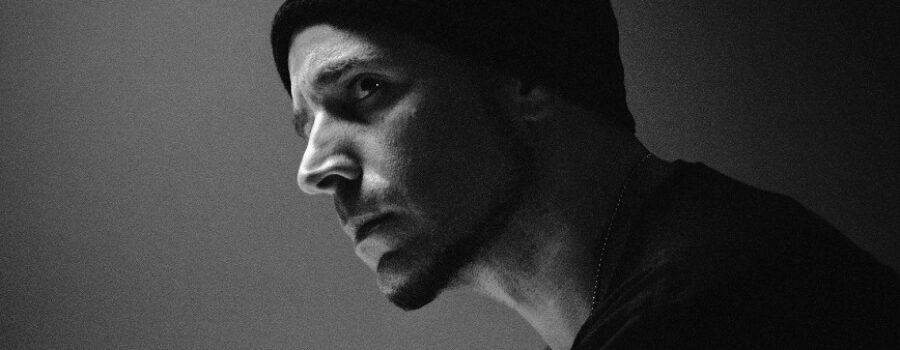There is an origin story for everyone, and for Matt Boroff, it includes a cassette tape. For those born in a time where music existed only in streaming formation – cassettes were magical rectangles that held audible entertainment back in the early ‘90s. Which was when Matt Boroff listened to a spoken word album that in many ways inspired. Almost three decades later, he’s here with a wonderful song sparked by that cassette, a new album out January 29th, and more and he’s talking to us all about those and then some.
Kendra: As someone who has been in music since cassettes were the end all be all to today when a global pandemic has changed live entertainment for the time being, how adaptable do you feel musicians have been with each new wave and hurdle that has come their way over the years?
Matt Boroff: I think the adaptive power of musicians and artists of all kinds comes from their ability to embrace adversity by integrating and reflecting it in the work itself. It’s like a judo move. Embracing that adversity can even lead to new avenues of expression that would’ve never been realized under different circumstances. Today’s situation is a sudden and difficult one, and it’s hard to say where it’ll lead for musicians like myself in the near future.
Right now, it seems like we’re using our latest technology as an alternative way of experiencing live music when we can’t be there physically. It certainly doesn’t compare to the real thing, but I think there’s going to be rapid improvements in that area. When the pandemic is in the rearview mirror, those improvements and innovations will remain, and I can imagine that they’re going to form a hybrid version of entertainment that’ll define the way we experience live-music in the mid-21st century.
Kendra: Speaking of cassettes, your single, “Let It Come Down,” was inspired by a spoken word tape you had back in 1995. How often did your mind wander back to that tape in the past 25 years, and when did you start getting the idea to craft this song?
Matt Boroff: I’ve thought about it often. I think I probably have an undiagnosed form of OCD or
something like it because I’ve always had layers of sounds, phrases of songs, and bits of dialogue playing on an endless loop in my mind. I’ve just accepted that they’re there and I treat them like friendly ghosts. The line “let it come down” from the William Burroughs poem ‘Apocalypse’ is one of those ghosts.
So, in a sense, writing “Let It Come Down” last year was just my way of making lemonade with lemons that William Burroughs gave me. You called yourself an “emotional weatherman” after recording ‘Beautiful Machine.’ With that, if you had to give us the forecast for this record – what would it be and why? Given its turbulent nature, I think ‘Beautiful Machine’ could be best summed up as hurricane season in the Caribbean.
Kendra: Listeners will be able to hear “Let It Come Down” on your January 2021 release, ‘Beautiful Machine,’ which you’ve compared to the hit Netflix series, ‘Black Mirror.’ I have to admit that I’ve only seen one singular episode and it freaked me out so much that I couldn’t go back. While ‘Beautiful Machine’ approaches and examines a new concept with each track, will this record also evoke fear in some?
Matt Boroff: Well, I guess that depends on the person. I mean, there’s a reason that so many people enjoy horror movies and roller coasters. They can be cathartic and exhilarating, which to someone like me, seems healthy. So, if you’re the kind of person that gets a rush from things like that, this album might even improve your health.
Kendra: I wouldn’t be shocked though as the year leading up to this record’s release was worse than even the scariest of film and television. Being an American living abroad, did you feel your physical distance was in any way an advantage on your mental health and well-being?
Matt Boroff: It’s complicated. I doubt I’m alone in feeling this way, but when you’re living abroad, you might end up becoming an unofficial representative or spokesperson for wherever you’re originally from. I feel this weird responsibility to keep myself as informed as I possibly can about what’s happening across the pond. By doing that, I can’t help but feel outraged and frustrated at what’s been taking place, and my sanity hasn’t been immune to any of it.
Kendra: 2020 definitely pushed people in various directions personally, financially, creatively. For you, how do you feel 2020 has shaped your creativity and drive moving forward?
Matt Boroff: A lot of my past work has brooded over lingering horrors on the horizon. Now, many of those horrors are here, and I feel like there’s no longer a need for me to overstate what’s obvious to everyone. I don’t see myself doing a one-eighty, but I feel like it’s the right time to include more life experiences from the other side of the emotional spectrum in my songs as well.
Kendra: Usually, this is where I ask people what they have planned in the coming months but with the world in a strange place right now, plans aren’t as concrete as they typically are. You can go ahead and let us know what you have tentatively planned but can you also share a song that never fails to get you through when the world around you feels like a mess?
Matt Boroff: I’m going to be doing some streaming shows from my rehearsal space soon. Following that, I’ll be releasing some live tracks and videos from those sessions. I don’t know if levitation is possible, but if it is, this song probably has something to do with it; Bernard Hermann “Thank God for the Rain” (from the ‘Taxi Driver’ soundtrack).






